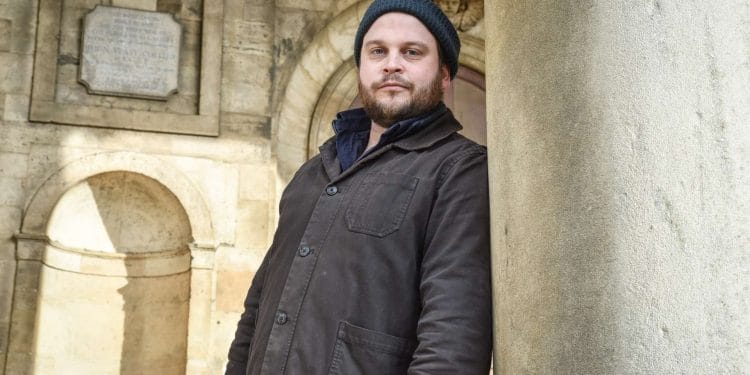Barney Norris talks about his new play The Wellspring produced by Royal & Derngate as part of its Made in Northampton 2021/22 season.
A deeply autobiographical work from award-winning playwright Barney Norris (The Remains of the Day) and his father, internationally acclaimed pianist and broadcaster David Owen Norris, The Wellspring examines that age-old story of a boy and his dad, and how they can relate to one another, in every sense of the word.
Performed on a bare stage by the father and son themselves, The Wellspring is directed by Jude Christian. It runs in Northampton from 17 to 26 March 2022, 29 to 30 March in Oxford, 26 to 28 May in Southampton, 30 May to 1 June in Guildford and then touring to literary festivals this summer.
Your new play The Wellspring is playing at Royal & Derngate ahead of a tour, what can you tell us about the play?
The play is a memory cycle written and performed by myself and my father – each of us has constructed a series of stories that are a way of telling our lives, and we interleave those two stories onstage.
Dad and I have things in common – both of us are artists, and we’ve lived in some of the same parts of the world; but there are things about us that are very different, partly because we’re different people and also because we’ve lived in different moments, different generations. So the play explores that in what is hopefully an entertaining and thought provoking way!
What inspired you to write it?
The play is actually a successor project to a book I wrote with my Dad of the same title, which was a series of interviews about his life and his work as a pianist and a composer. I suppose it was all a way of trying to know my Dad better.
As you get older, things like that seem to start to matter more. The fact I grew up away from my Dad has started to matter more, and I’m finding myself exploring how that affected me, and our relationship.
How difficult was it to write such a personal story?
The really difficult thing has been what to leave out. Once you start down the road of autobiography, everything can possibly be material, so a lot of thought has to go into what to leave out, what to leave alone, what not to mention, either because it’s not relevant or because it’s going to cause pain.
You and your father are also performing The Wellspring, how have you found that?
It’s such an education! I can’t tell you yet whether we’re very good at it, but speaking for myself, I feel I’m learning a great deal. Mostly about how much I don’t know about this art form I work in, but some of it is useful and will make me better in future.
I am having to invent myself as a performer, and that involves a lot of trial and error and technical limitation and playing with ideas – it’s stimulating, exhausting, frustrating, overwhelming, and I love it.
How has director Jude Christian helped you look at your own story from a different perspective?
Jude has played a crucial role in shaping what we have put into the show, and she has also held and cared for the dynamic between myself and Dad, the way that resonates and speaks in the show. I’m normally sitting next to the director, watching the actors, when a play of mine goes on; being onstage, I realise it’s much harder to see the whole picture of a production – there is so much trust involved in letting someone direct you. Or write words for you to say.
What would you say to anyone thinking of booking to see The Wellspring?
I’d say that they have excellent taste! And that I hope the play will prompt them to think about their own family and their own lives, and to laugh, and to feel something out of the ordinary. I’d say that I’m very grateful to them for considering coming along.

















